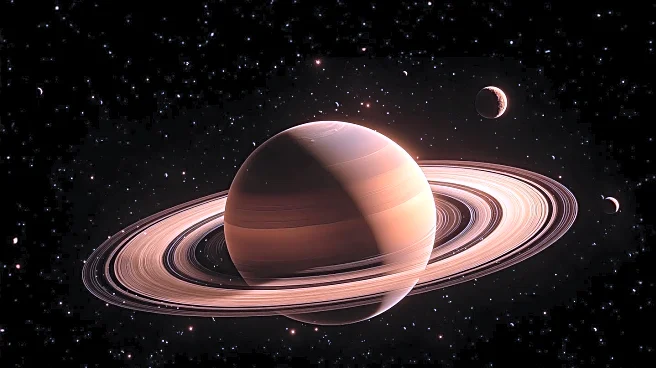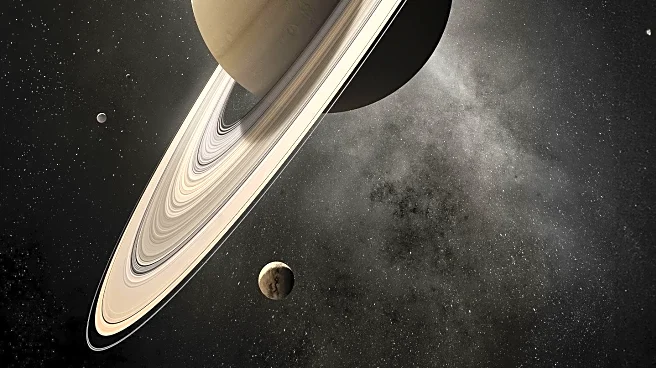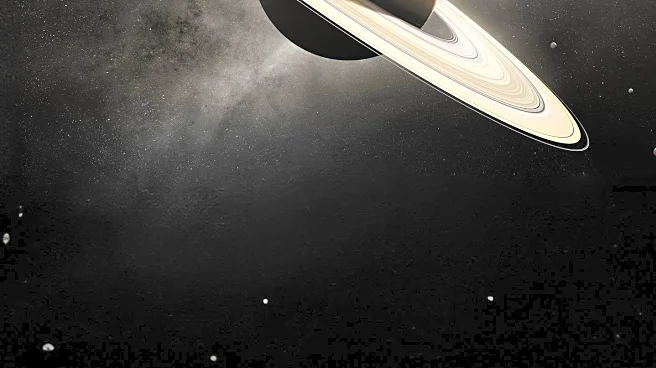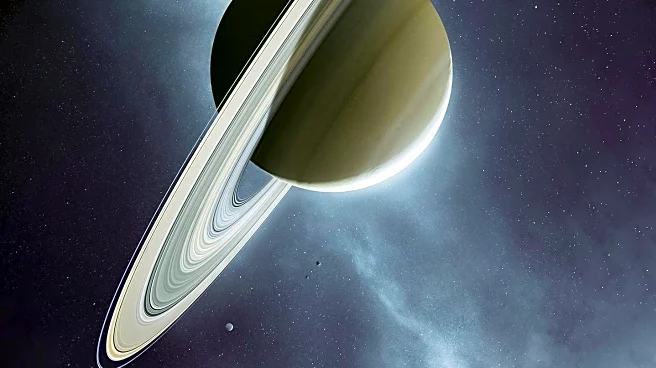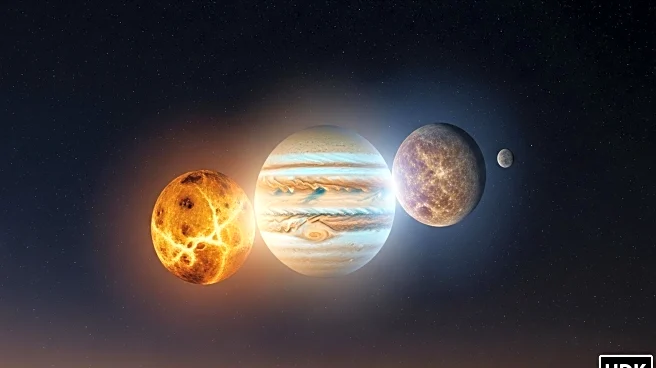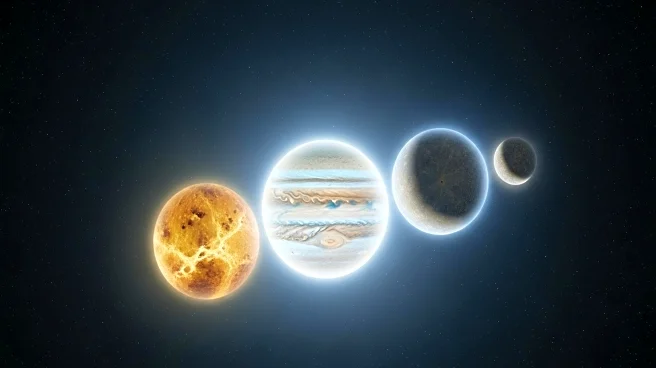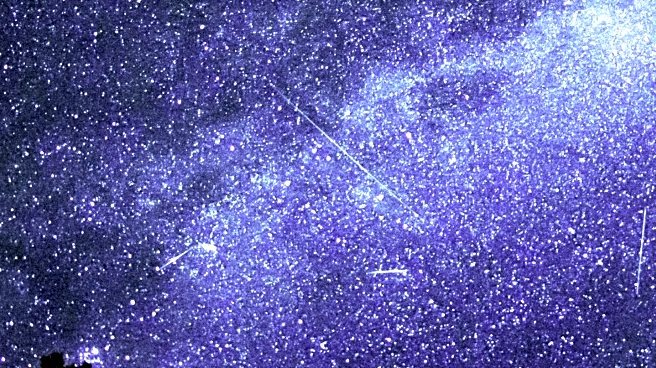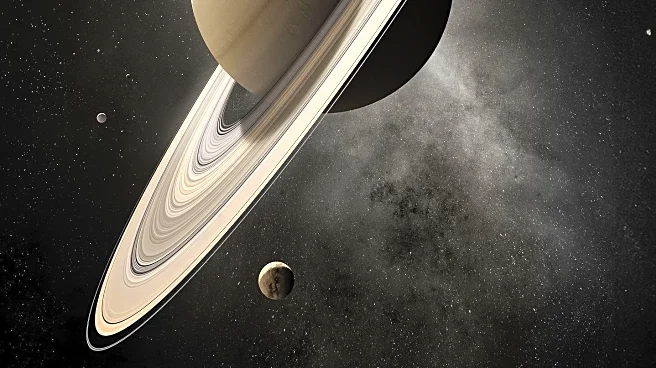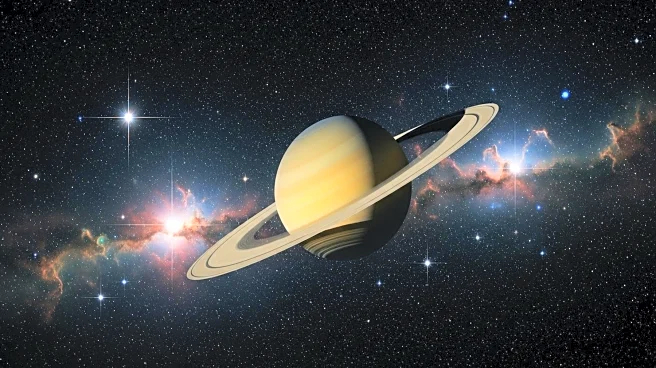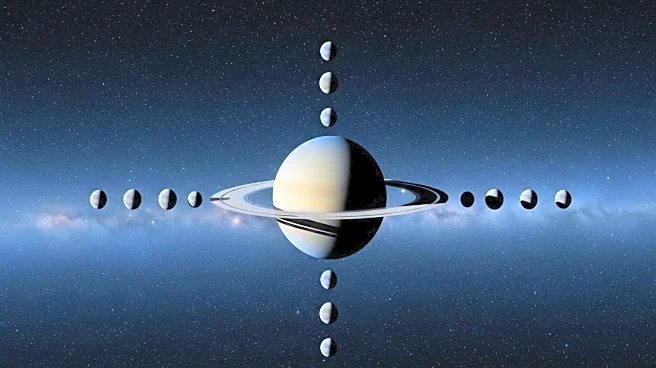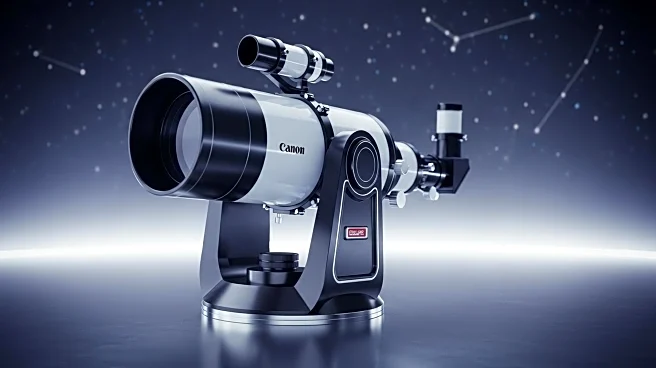What's Happening?
Central Wisconsin sky watchers are in for a treat with a series of celestial events featuring Saturn, Venus, and Uranus. Saturn, accompanied by its moons, is visible in the eastern sky just after sunset. Notably, its moon Iapetus reaches its greatest western elongation, making it an ideal time for observation. Venus, shining brightly, is positioned near the Beehive Cluster in Cancer, offering a spectacular view through binoculars or a telescope. Additionally, the week provides an opportunity to track Delta Cephei, a variable star in Cepheus, which played a crucial role in Edwin Hubble's astronomical discoveries. These events are part of a broader lineup of planetary shows and star formations visible throughout the week.
Why It's Important?
These astronomical events offer both amateur and professional astronomers a chance to observe and study celestial bodies and phenomena. Saturn's moons, particularly Iapetus and Titan, provide insights into the dynamics of planetary systems. Observing Venus near the Beehive Cluster allows for a unique view of planetary and stellar interactions. Tracking Delta Cephei is significant for understanding variable stars, which are essential for measuring cosmic distances. These events not only enhance scientific knowledge but also engage the public in astronomy, fostering a greater appreciation for space exploration and science.
What's Next?
As the week progresses, sky watchers can anticipate further celestial events, including Mercury's close pairing with Regulus and the visibility of Uranus near the Pleiades star cluster. These occurrences will continue to offer opportunities for observation and study. The changing phases of the Moon will also affect visibility conditions, making certain nights more favorable for stargazing. Enthusiasts are encouraged to use telescopes and binoculars to maximize their viewing experience and to stay informed about upcoming astronomical events.
Beyond the Headlines
The observation of these celestial events highlights the importance of public engagement in science and the role of amateur astronomers in contributing to astronomical research. The accessibility of these events encourages educational activities and community gatherings centered around stargazing. Additionally, the study of variable stars like Delta Cephei underscores the ongoing relevance of historical astronomical discoveries in modern science.
